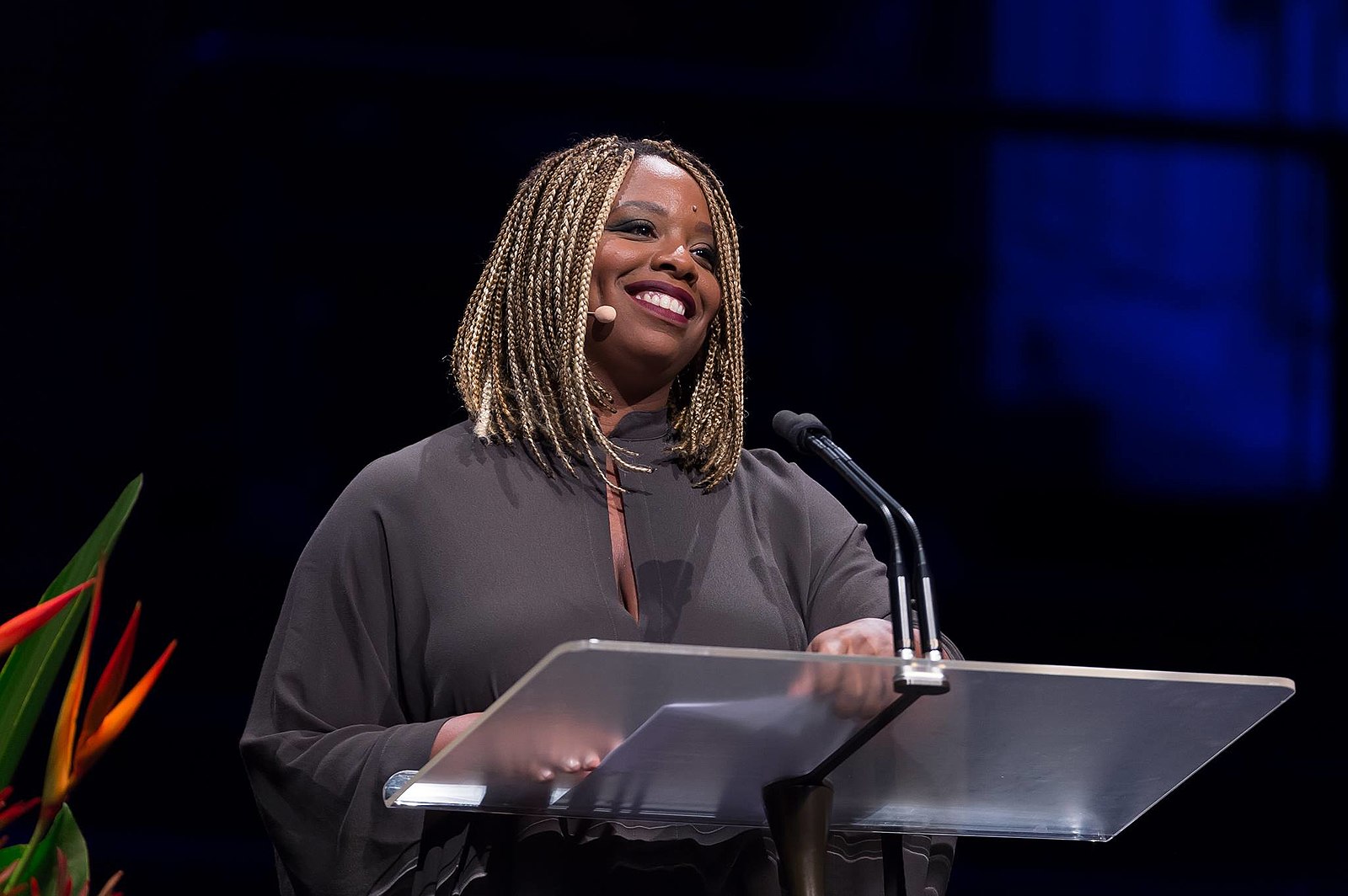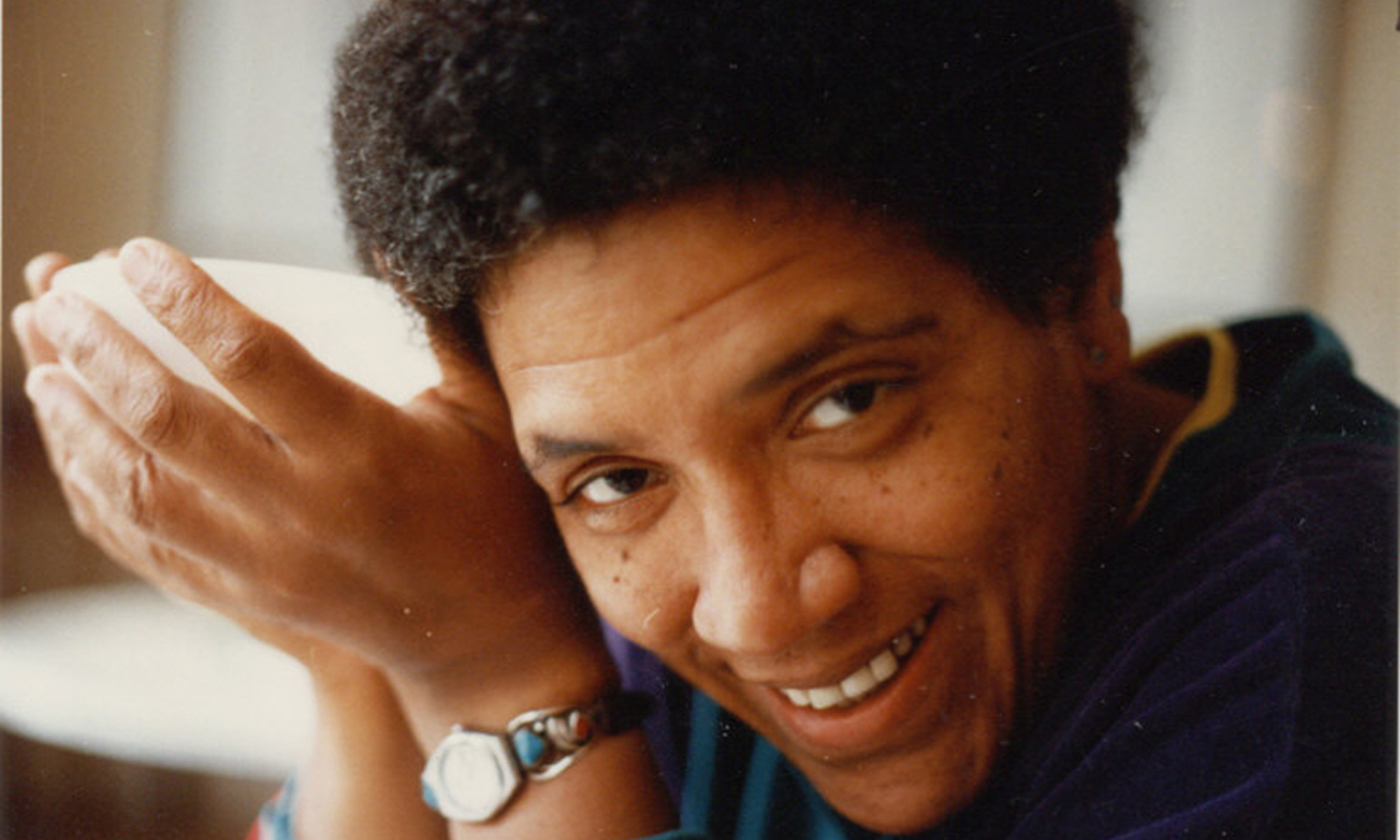
So often, iconic historical figures become known for who they are as a celebrity, rather than for what they do: they are memorialised as a silhouette on a cheap T-shirt, or a poster blu-tacked on a bedroom door. They are lauded as geniuses; people with inherent talent or altruism, who from the moment of birth are fated to soar above the rest of us. This thinking, when applied as a glossy sugar-coated narrative to the emergence of creatives, great “thinkers”, and the radicals and revolutionaries who spearhead social justice struggles, is particularly unhelpful. It suggests that fighting for social change is the responsibility of a talented few, and in doing so absolves us of responsibility to seize change with our bare hands or to labour in solidarity with those over whom we hold privilege. Patrisse Khan-Cullors’ and Asha Bandele’s compelling, nourishing memoir When They Call You A Terrorist: A Black Lives Matter Memoir flies in the face of such a confection.
In her memoir, Khan-Cullors (one of the founders of Black Lives Matter, alongside Opal Tometi and Alicia Garza) instead chronicles the slow-burning, organic procession of her own politicisation. She writes of a childhood and adolescence that transpired without fanfare. She recalls poverty and social inequality; the policing and incarceration of her friends, parents and siblings, not as exceptional or sensational moments, but as part of the routine daily violence which comprises the black experience.
Khan-Cullors draws on her own experiences to illuminate the methods and strategies she would later employ in organising with Black Lives Matter. In doing so, she collapses the hierarchy so often constructed to separate personal testimony from political analysis in non-fiction writing. I’m reminded of writer Roxane Gay’s brilliant interview on the podcast Another Round when she discusses the tendency for women writers to be forced to “cannibalise” our own experiences in order to write with authority, whilst men are so often constructed as potential independent experts on anything. The memoir does read like an exposing or letting of the self, and because of this it is unsettling, necessarily so. At the same time, it is also unapologetic and confrontational: Khan-Cullors challenges us to bear witness to the brutality of white supremacy as meted out on those she loved the most.
In the foreword, prison abolitionist and academic Angela Davis explains that Cullors’ memoir exists at the “productive intersection of personal experiences and political resistance”. It is this melding of personal and political that firmly roots the Black Lives Matter movement in a wider landscape of social justice demands. Drawing on the experiences of her family members, Khan-Cullors writes about the need for equitable healthcare for poor and black communities, and the violence of the prison industrial complex which systematically re-traumatises poor black bodies, and lacerates families and communities with deep emotional and economic scars. She also writes about drugs and addiction, and the drivers of poverty and isolation which lead to substance use becoming draining and dangerous.
It is fortifying to read literature which also does not shy away from outlining the inherent racism and violence of the police. Recounting her observations of law enforcement as a child, Khan-Cullors writes: “For a long time I see them, the police in their cars, but I do not understand them, what role they play in the neighbourhood”. It’s difficult to unlearn the associations you are taught as a child: whilst I enjoyed PC Partridge’s visit to our primary school because he let us sit in his car and run the lights, I was also acutely aware of my Dad being pulled over by police for no reason, and of us being closely followed by security around shops selling electrical goods. As black children these experiences mark us indelibly- it is a privilege to solely associate police presence with safety.
Khan-Cullors is also biting and frank in her reflections on the 2016 US presidential election. Without name-checking Hillary Clinton, she makes seething reference to the former First Lady’s description of black American youth as “super-predators”. Soundbites aside, Clinton’s husband and his administration are largely responsible for creating the prison industrial complex that abolitionists have been fighting hard to dismantle ever since: in the last few decades, the US prison population has increased by 500 percent. However, Khan-Cullors is also nuanced and realistic in her analysis: with Trump as president rather than Clinton, she warns that the struggle for equitable healthcare, safer streets and supported communities will be a much tougher, bloodier battle.
The memoir is a primer for accountable movement-building: Khan-Cullors reflects on both the innovations and lessons learnt in the founding of Black Lives Matter. She confronts the movement’s failure to give voice and platform to the perspectives and contributions of transgender women of colour early in the struggle, and consistently centres the energies and labour of queer black folk in her re-telling. The memoir also documents the “burnout culture” of social justice organising. Khan-Cullors questions the consequences of organising for social change within a capitalist framework (“Are our organisations paying the least while demanding the most from people we know are too committed to say no or ask for more?”), and acknowledges the impact of doing difficult, exhausting, demanding work on interpersonal relationships.
As I read the book, I recall the many relationships that I have sacrificed at the altar of some campaign or action. Organising closely with others, particularly when performing actions which could be criminalised requires a deep level of openness, honesty and trust. It can be difficult to then engage intensely with someone outside of your organising family who both hasn’t shared your experiences, and is – without meaning to – demanding additional emotional output.
When They Call You A Terrorist is a powerful, self-critical, and intimate portrait of how organising for social change can look in the 21st Century. Crucially, it doesn’t valorise self-sacrifice or insist that to define a movement we must embody the heteronormative machismo that so often plays out in lefty activist spaces, in which inserting ourselves into situations of physical or mental harm is deemed the only way to demonstrate dedication to the cause (although the Black Lives Matter co-founders do this, often).
Khan-Cullors insists that as black organisers we must also allow ourselves to laugh and love deeply; to grow community and surround ourselves with chosen family. In fact, this is the precise antidote the writer prescribes to ward against the toxicity of police, prisons, and criminal justice structures: a healing and compassion-centred approach to community control and nurture. Because of this, When They Call You A Terrorist is a timely addition to the canon of black revolutionaries; written with care, honesty, and unwavering dedication to the evolving and unstoppable movement for all black lives.








